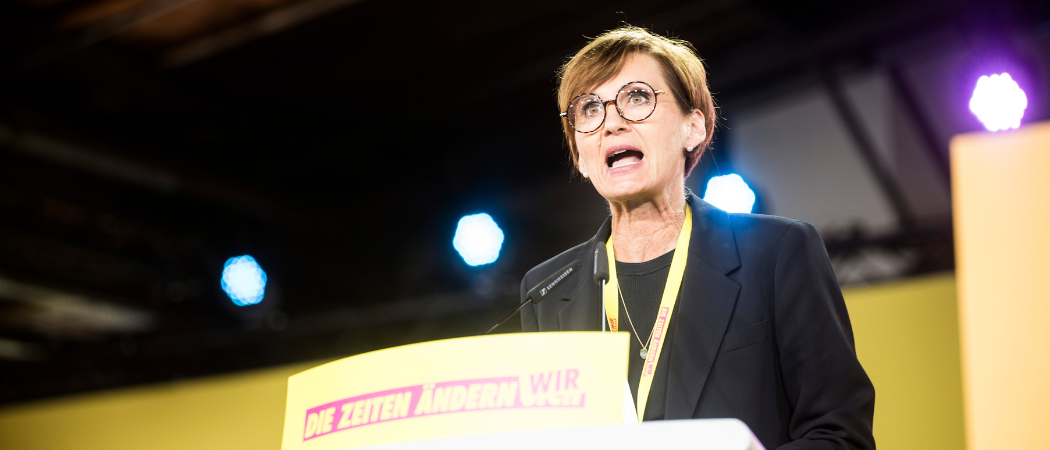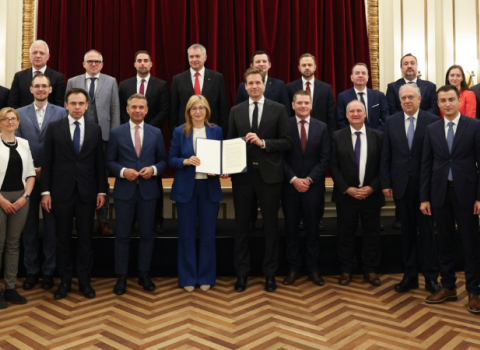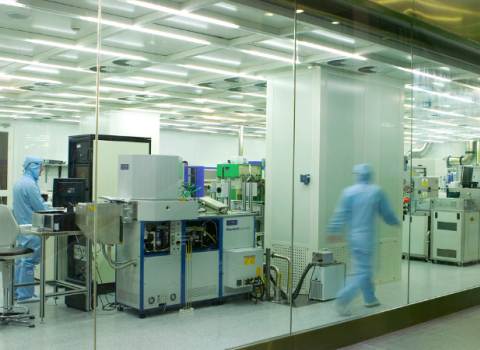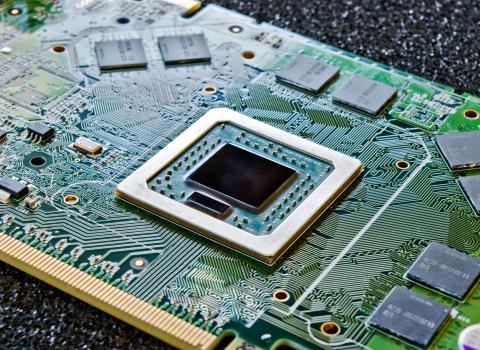For the first time, technology has been singled out as a flashpoint for global security. German science minister Bettina Stark-Watzinger will tell the conference she wants ‘increased action’ on research security

German research minister Bettina Stark-Watzinger. Photo: Sanjar Khaksari / Flickr
Science|Business - Table.Media partnershipScience|Business has partnered with Table.Media, a leading source of news about higher education and research in Germany. Each week, we are publishing one of each other’s stories to give readers an even broader range of insight into R&D policy across Europe. |
Chip production and artificial intelligence are increasingly becoming weapons in geopolitical competition, according to a report, published to coincide with the Munich Security Conference (MSC), which kicks off on 16 February.
Experts point to a "geopolitisation of the technology sector", and now German research minister Bettina Stark-Watzinger wants to take action – while trying to maintain a balance with academic freedom.
Modern technologies and the research on which they are based have driven economic globalisation in recent decades and brought growing prosperity to many countries.
However, according to the latest security report from the MSC, this growth could come to an end, because chip production and AI are increasingly becoming weapons in geopolitical competition. At the security summit, Stark-Watzinger will take part in several panels to discuss how research policy needs to deal with these new challenges to research security.
For the first time, this year’s MSC’s security report addresses technology as a potential security trouble spot. "As states increasingly use technology to gain dominance over their geopolitical rivals, these new trends of technological weaponisation and disintegration have implications for international security," it warns.
Three sectors in particular are increasingly causing international tension:
Semiconductors, communication infrastructures and AI: The disruption of supply chains in chip manufacturing has brought entire industries to a standstill. Access to basic materials, such as rare earths, is proving to be a dangerous bottleneck. Chip factories are increasingly being built outside Asia again, with plants in the US being subsidised to the tune of $43 billion and $53 billion in Europe. "There is therefore a great risk of a subsidy race,” the report warns.
Telecommunications infrastructure: For years, Europe and the US used "affordable Chinese digital hardware" to expand their digital infrastructures without paying attention to data security and information leakage. However, "since 2018, the US and other democracies have restricted the use of Chinese hardware in their 5G networks for espionage reasons, albeit with varying degrees of determination", the report notes.
Artificial intelligence: "China and the US are vying for supremacy in AI, but it is unclear who is ahead,” the report says. The key figures at national level paint "an ambiguous picture”. In 2021, 40% of publications in AI journals came from Chinese institutions, while only 10% were from US institutions. But the opposite is true for the financing of new AI companies, where the US is far ahead. In 2022, 542 new AI start-ups were financed in the US, compared to 293 start-ups in the EU and UK, and 160 in China.
Democratic versus autocratic visions
These trends are leading, according to the report, to a "geopolitisation of the technology sector", with the old networks of global cooperation disintegrating and being replaced by new power-political constellations.
At the same time, "a confrontation is unfolding between democratic and autocratic visions of digital governance, in which China, the EU and the US are using digital regulation and infrastructure to export their contradictory visions.” Whether the path of strict AI regulation in the EU leads to isolation, or generates a model for the entire world, remains to be seen.
MSC, held for the 60th time this year, is the largest meeting of its kind in the world, bringing together politicians, military and business representatives, non governmental organisations and experts to discuss security-related topics.
Science will be on the agenda, with Stark-Watzinger present for at least three events on Friday. In the morning, she will give a keynote speech as part of the ‘Conversation on Research Security’ panel. Later, she will take part in ‘Growing the Pie: A Global Order that Works for Everyone’. She will also speak about AI on a panel titled ‘Responsible Use of AI and its Contribution to a Future Proof Democracy / AI as Driver of Innovation and Democracy’.
A spokesman for the research ministry said that the topic of research security is very important to Stark-Watzinger. "Increased action" is planned, he said, but "the balance between scientific freedom and security policy issues" should also be maintained.
This text appeared for the first time in Research.Table, a professional briefing from the largest independent start-up for quality journalism in Germany. The editorial team reports for the key people in the research scene who set and fill the framework for science, research and development.






 A unique international forum for public research organisations and companies to connect their external engagement with strategic interests around their R&D system.
A unique international forum for public research organisations and companies to connect their external engagement with strategic interests around their R&D system.